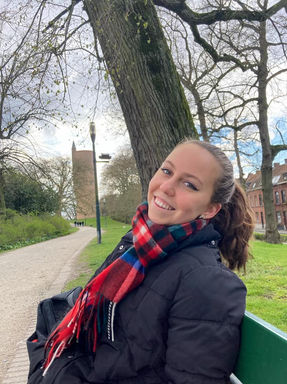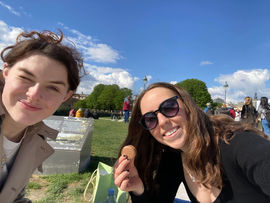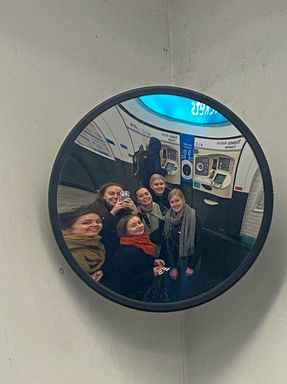Reflection
See the gallery below for more images of my travels during my time abroad OUTSIDE of the Netherlands!
While teaching English as a second language, I have met many exchange students from all over the world, but I never could fully imagine all the hoops they had to jump through to get here or all of the challenges they faced. You always hear about how fun studying abroad is and it is quite romanticized, especially in the United States. As I set out for my exchange semester in the Netherlands no amount of research could have prepared me for what I would face. I would consider myself an organized person. I am the person that likes to be 15 minutes early, and makes extra copies of everything. I had spreadsheets upon spreadsheets. I scoured Reddit pages, met with Dutch professors at my university, and even began my quest to learn Dutch by buying a book. Yet, when I stepped off the plane in Amsterdam I soon learned that I could not have planned out everything perfectly, and that was okay.
After taking a train to the lovely city of Utrecht and lugging my eighty pounds of luggage across the cobblestone sidewalks to my Airbnb I took a sigh of relief. Despite my Duolingo and textbook, my Dutch was certainly not up to par with the locals. I felt humbled in my lack of linguistic knowledge when everyone else was fluent in both Dutch and English. My first day was chaotic. After I managed to not get hit by a biker on the way to the grocery store, I checked out with my groceries and struggled to bag my items as fast as the cashier scanned them—giving away that I was a foreigner who was not used to having to pack my own bags. After making the trek back to my lodging, I made some goals for myself for the next day and learned that I had bought some of the wrong items by not translating things correctly. Jet lag gave me a late start to the next day. I began to research and decide what to do, but I felt overwhelmed as I felt that the Dutch people all must hate me for not knowing Dutch and I feared going outside. This was during a time of self quarantine, thus I had not moved into my dorm or met other students at the university. I was alone in this city. I went out and about to try to run some errands, but ended up not finding the right thing, getting lost and becoming discouraged. One last thing I knew I could check off my list was taking a picture while out and about. This may sound dumb, but the first day I was afraid I would look like a tourist if I took a photo. I walked around, took my photo, struggled to unlock my Airbnb, and finally walked in, sat down on the couch and began crying.
It had only been 24 hours and I was so overwhelmed. It seemed like I was bound to not fit in and adjust. I now began to personally understand what all of my students faced when they moved to the States to learn English. Except, any adversity I faced, they faced ten-fold. I tried to consider this when encouraging myself for the next day. My students would go to a country where hardly anyone spoke their mother tongue. For me, most Dutch people speak English very well. Additionally, I was traveling from one western country to another with a very similar culture compared to many of my students who come to America from a very different setting, culture and more. And those reasons were just the tip of the iceberg. I thought of my students and used them as inspiration to keep pushing forward. From then on things improved. I found a lot of adjusting is going in with confidence and “faking it until you make it.” Eventually, this confidence became a reality. My ability to navigate foreign countries and situations became spectacular and the nervousness that once accompanied me had left. Living abroad also has taught me so much more about the world and how different groups of people interact. Standards of intercultural communication are not internationally versatile, despite what you might think. It really depends on the individual country, cultural identity, socioeconomic status, race, and more, and each of these weighs differently and is displayed differently in each country. I feel that my ability to navigate these difficult situations has been tremendously impacted by not only my experience of teaching at the University of Florida English Language Institute, but also my time studying abroad and my international coursework. I am currently planning to move to Ireland for an internship for a few months and then further explore Europe, and I have never felt more competent in maneuvering through the challenges that may be thrown at me. A year ago, I was so nervous to move abroad for seven months, but now I am filled with so much excitement and an open mind.
On my third day in Utrecht, I met an older Dutch lady in the mall who invited me to grab a coffee with her. She actually was originally from Spain but she had lived in Italy, France and now the Netherlands. She had faced so much adversity in her life and was a real inspiration. During our chat she said to me that “a seed’s shell has to be broken to grow.” I have carried this sentiment with me ever since that day. I think that the international experiences the International Scholars Program has given me have been able to facilitate the breaking of my shell. They have allowed me to grow and blossom into a better version of myself that can tackle not only the ups and downs of life but also make an impact on the world.
























